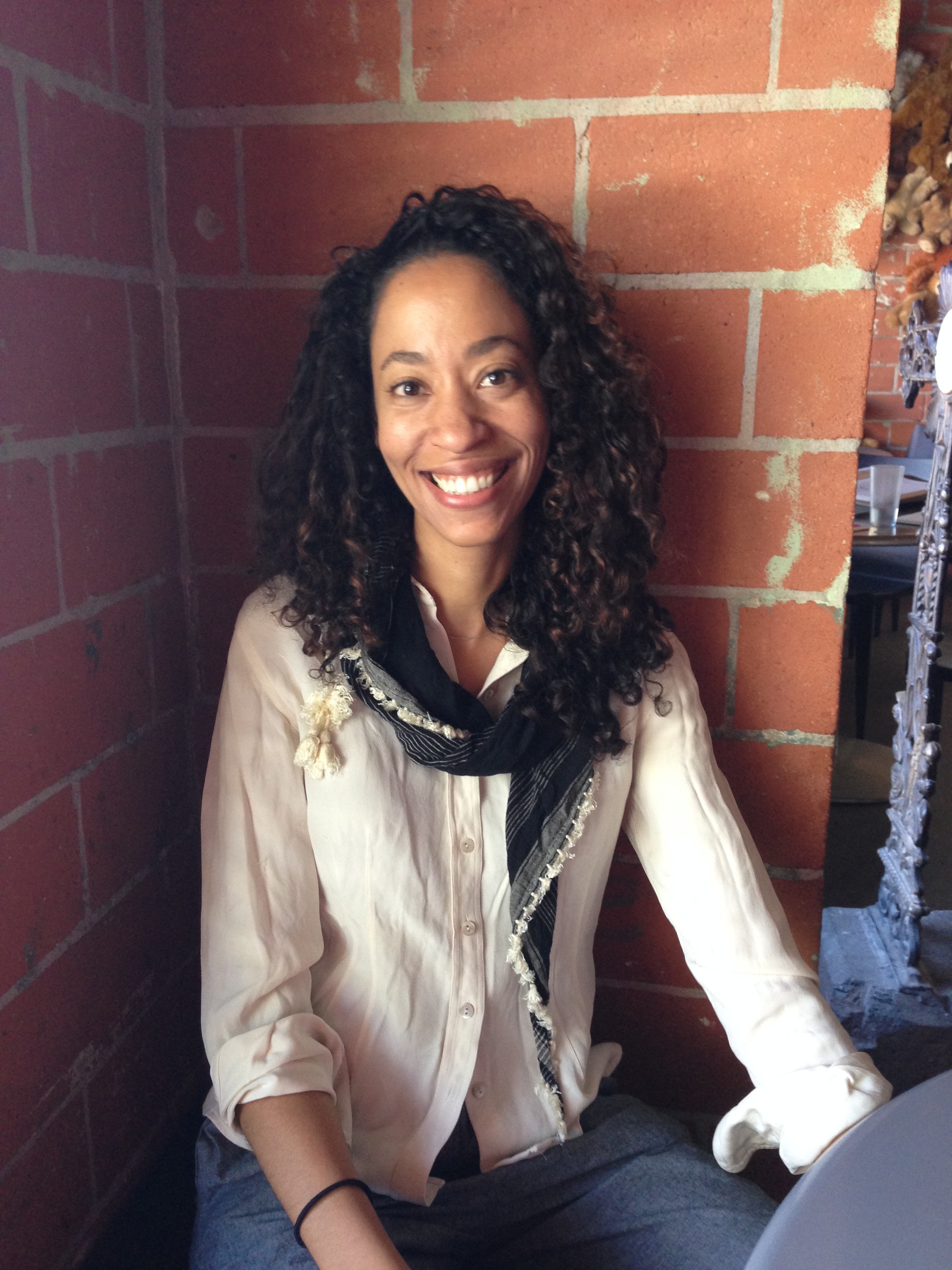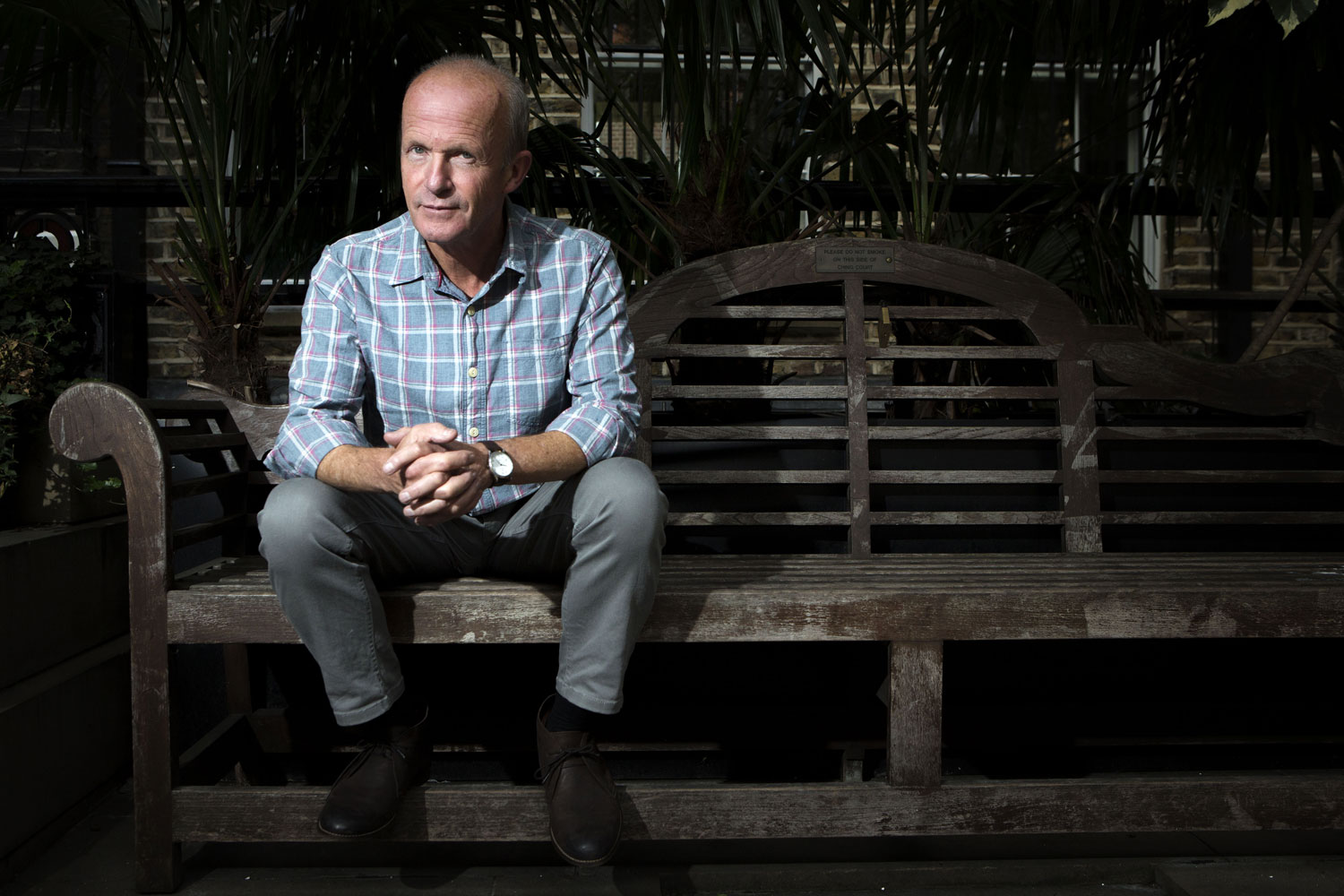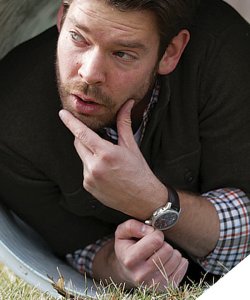The Anger Meridian
Kaylie Jones reveals the inspirations behind the title of her new novel, The Anger Meridian (Akashic Books, 2015), which is featured in Page One in the current issue of Poets & Writers Magazine.
Jump to navigation Skip to content
Kaylie Jones reveals the inspirations behind the title of her new novel, The Anger Meridian (Akashic Books, 2015), which is featured in Page One in the current issue of Poets & Writers Magazine.
In Elegy for a Dead World, a creative-writing video game featured in the May/June issue of Poets & Writers Magazine, players write stories and poems while traversing through deserted worlds inspired by the poetry of Shelley, Keats, and Byron. This week, find fictional inspiration by choosing a Romantic poem and writing down, in complete sentences, the mood or atmosphere. Describe the visual landscape that you imagine, then create a scene and introduce characters.
"The gunshots that echoed throughout the valley sounded almost patient." Colin Winnette's new novel, Haints Stay (Two Dollar Radio, 2015), featured in Page One in the current issue of Poets & Writers Magazine, is a contemporary western about two murderous brothers.
Adrienne Perry blogs about her P&W-supported writers of color workshop and reading at Writespace in Houston, Texas. Perry earned her MFA from Warren Wilson College and is a PhD student in Literature and Creative Writing at the University of Houston. She serves as the current Editor of Gulf Coast and is a Kimbilio Fellow. Perry's work has appeared or is forthcoming in Tidal Basin Review, Copper Nickel, and Indiana Review. She is at work on a novel and a collection of short stories.
 Some of the best advice I’ve heard about writing came from a high school guidance counselor. When seniors grew nervous about writing college essays, she calmed them down by saying their job was simply to: “Tell a story. Tell a story only you can tell. Tell it in your own voice.” In her view, if the college essay met those three criteria, the student had investigated their life and experience enough to say something unique, something that mattered to them and would be more likely to matter to admissions officers combing through hundreds of personal narratives.
Some of the best advice I’ve heard about writing came from a high school guidance counselor. When seniors grew nervous about writing college essays, she calmed them down by saying their job was simply to: “Tell a story. Tell a story only you can tell. Tell it in your own voice.” In her view, if the college essay met those three criteria, the student had investigated their life and experience enough to say something unique, something that mattered to them and would be more likely to matter to admissions officers combing through hundreds of personal narratives.
I’ve carried the “tell a story, tell a story only you can tell” advice around for years, even sharing it with my own college counselees, but I had never run it by creative writers. This April, I decided to share it with my writers of color workshop at Writespace in Houston. What happened? It became a mantra seeping into the workshop rhetoric. One of the frustrations I’ve heard from writers of color, in this workshop and elsewhere, is that people so often make unconscious assumptions about the kinds of stories writers of color will tell and the voices those stories will be in.
Telling our own stories in our own voices takes courage and pushes the imaginations of both white and nonwhite readers. Charles Redd shared that our writers of color workshop “created something special in me, [and was] impacted by shared experiences.” Another writer from the workshop, Ima Oduok, wrote in an e-mail: “When I saw Writespace was hosting a workshop for writers of color, I was ecstatic. The literary world is still mostly filled with white men, and that imbalance makes me hold back in other workshops or conferences. There's an unspoken, unsubtle message that literature is not for us. Workshops, such as this one, invite those who would normally be shy about developing.”
On the last day of the workshop, we ended early and held a reading. For a city as racially and ethnically diverse as Houston, this reading and this workshop at Writespace were both, in some ways, a first. And except for one or two of the writers, the reading was a personal first, too. The Writespace studio is small and cozy, so we took the long tables into the hallway and set up tight rows of chairs, wondering who would come to hear us telling stories only we could tell and in our own voices. Turns out, quite a few. By the time the reading started, the room was packed.
The man who made perfectly shaved ice in San Antonio, a waitress who used a Taser on an attacker after a late night shift, a woman unwinding from a night of partying on a balcony in Virginia Beach, the dissolution of a marriage as seen through a favorite TV show—each reading was singular, a reminder that not only should we write the stories only we can tell, but that doing so in a workshop for writers of color can be a powerful part of that process.
Photo: Adrienne Perry. Credit: Lesli Vollrath.
Support for Readings & Workshops events in Houston is provided by an endowment established with generous contributions from the Poets & Writers Board of Directors and others. Additional support comes from the Friends of Poets & Writers.
Tayari Jones answers questions about her writing process and discusses the obstacles she experienced in publishing her novel Silver Sparrow (Algonquin Books, 2011). Read Jones's interview with debut novelist Angela Flournoy in “First Fiction 2015" in the July/August issue of Poets & Writers Magazine.
This animated trailer for Rebecca Dinerstein's debut novel, The Sunlit Night (Bloomsbury, 2015), was created by Jonty de Klerk. Read more about Dinerstein in “First Fiction 2015" in the July/August issue of Poets & Writers Magazine, and catch her tour in the Reading Tour Manager.
The Dublin City Council announced today that British author Jim Crace has won the 2015 International IMPAC Dublin Literary Award. Crace, who won for his novel Harvest (Doubleday, 2013), will receive €100,000 (approximately $113,000). The annual award, which is one of the world’s largest prizes for a single book, is given for a novel written in English and published in the previous year.
Now in its twentieth year, the IMPAC award only accepts nominations from libraries. Crace’s novel was chosen from 142 titles that were nominated by libraries in 114 cities in thirty-nine countries. The Swiss library Universitätsbibliothek Bern and the Tallahasee, Florida–based LeRoy Collins Leon County Public Library both nominated Crace’s novel. Valentine Cunningham, Christine Dwyer Hickey, Daniel Hahn, Kate Pullinger, Jordi Soler, and Eugene R. Sullivan judged.

“It has been an overwhelming surprise and a delight to discover that my latest book has won the IMPAC Dublin award,” said Crace. “Harvest proved to be a generous novel in the writing. Readers and critics were more than generous in their responses. And now, thanks to the further generosity of a whole wide-world network of book-loving strangers, Harvest has struck lucky again—it will be included in the distinguished and twenty-year-long list of fiction honored by this truly international and discriminating award. No writer could hope for more than that.”
The shortlisted novels for the prize were Americanah by Chimamanda Ngozi Adichie; Lulu Norman’s translation from the French of Mahi Binebine’s Horses of God; The Narrow Road to the Deep North by Richard Flanagan; Burial Rites by Hannah Kent; Sue Branford’s translation from the Portuguese of Bernardo Kucinski’s K; Geoffrey Strachan’s translation from the French of Andreï Makine’s Brief Loves That Live Forever; TransAtlantic by Colum McCann; Someone by Alice McDermott; and Sparta by Roxana Robinson.
Previous winners of the prize include Juan Gabriel Vásquez for The Sound of Things Falling, Colum McCann for Let the Great World Spin, Per Petterson for Out Stealing Horses, Colm Tóibín for The Master, and Edward P. Jones for The Known World.
Photo: Jim Crace. Credit: Matt Writtle.
"I give my thanks to Franz Kafka whose novel Das Schloss [The Castle] I read when I was twelve years old… I believe my fate was sealed." Hungarian fiction writer László Krasznahorkai gives his acceptance speech for the 2015 Man Booker International Prize last month.
You know that weird notion that sometimes surfaces when you meet new people—that feeling that you already know them, but can’t remember why or how? Write a scene for a story about two people who both experience the same déjà vu upon meeting, with a plot driven by their need to figure out how they know each other. Use this opportunity to add an element of magical realism to your story. Perhaps they were married in a past life, or maybe they met in a dream. Once they solve the puzzle, how does this impact their lives going forward? Do they even believe the answer, or do they agree it’s too far-fetched?

Clayton Smith has self-published several books, including his latest novel, Apocalypticon, and used his experiences to cofound Dapper Press, a company that provides essential services like editing, design, and promotion to self-published authors. Editor Kim Bookless and publicist Lissy Peace weigh in on Smith’s process, and such self-publishing necessities.